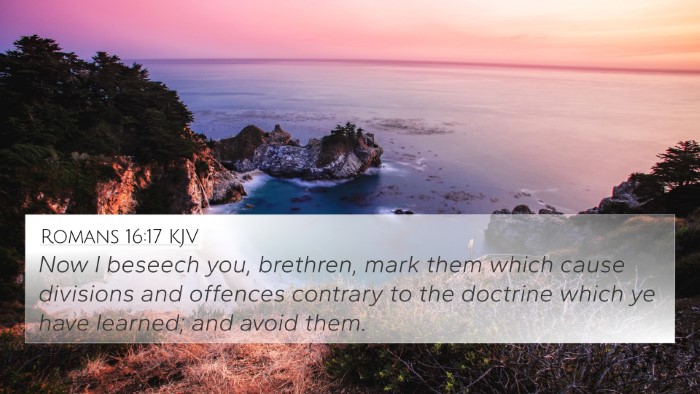Understanding 2 Corinthians 11:20
Verse: 2 Corinthians 11:20 - "For ye suffer, if a man bring you into bondage, if a man devour you, if a man take of you, if a man exalt himself, if a man smite you on the face."
Summary of Meaning
This verse presents a powerful admonition regarding the dangers of false teachings and the manipulative actions of false apostles. Paul, in his second letter to the Corinthians, expresses his concern about those who lead others astray. The verse highlights the varying ways in which individuals might exploit or take advantage of the faithful, whether through coercion, deceit, or manipulation.
Insights from Public Domain Commentaries
- Matthew Henry:
Henry emphasizes the ironic suffering of the Corinthians, who allowed themselves to be subjected to those who would mistreat them in the name of leadership. He reflects on the self-serving nature of false teachers who impose burdens while claiming spiritual authority.
- Albert Barnes:
Barnes discusses the social context of the Corinthian church, noting how members were vulnerable to those who exuded authority or charm. He underlines the spiritual immaturity that leads believers to tolerate abuse under false pretenses of guidance.
- Adam Clarke:
Clarke reflects on the different forms of oppression mentioned in the verse. He notes that spiritual leaders should not enrich themselves at the cost of the faith community. Instead, they should be servants, not masters.
Cross-References
This verse connects to several other passages that further illuminate its meaning:
- Galatians 5:1: "Stand fast therefore in the liberty wherewith Christ hath made us free, and be not entangled again with the yoke of bondage." - Paul encourages freedom in Christ, contrasting the bondage mentioned in 2 Corinthians 11:20.
- 2 Peter 2:1: "But there were false prophets also among the people, even as there shall be false teachers among you..." - Highlights the historical presence of deceitful leaders in the church.
- Matthew 23:4: "For they bind heavy burdens, and grievous to be borne, and lay them on men's shoulders..." - Jesus speaks against those who exploit the faithful, paralleling Paul's warning.
- Romans 16:17-18: "Now I beseech you, brethren, mark them which cause divisions and offences contrary to the doctrine..." - A call to remain vigilant against divisive leaders.
- 1 Timothy 6:3-5: "If any man teach otherwise, and consent not to wholesome words, even the words of our Lord Jesus Christ..." - A reminder to adhere to sound doctrine against self-serving doctrines.
- 1 Corinthians 3:3: "For ye are yet carnal: for whereas there is among you envying, and strife, and divisions..." - Reflects on the spiritual state that leads to susceptibility to false teaching.
- Colossians 2:8: "Beware lest any man spoil you through philosophy and vain deceit, after the tradition of men..." - Warns against the dangers of being led astray from the true message of Christ.
Thematic Connections
2 Corinthians 11:20 provides a strong thematic continuity within Pauline epistles and connects well with broader Biblical themes of vigilance against spiritual deception.
- Spiritual Discernment: The need for wisdom in recognizing true leaders versus false ones.
- Freedom in Christ: Emphasis on staying true to the liberty that Jesus offers, challenging the imposition of burdens.
- Authority and Service: The biblical model of leadership as servanthood, not oppression.
- Protection of the Faithful: A call for the community to protect one another from spiritual exploitation.
Tools for Bible Cross-Referencing
For those studying this verse, utilizing various tools can enhance understanding:
- Bible Concordance: Helps locate verses related to specific themes in 2 Corinthians 11:20.
- Cross-Reference Bible Study: Guides for exploring links between passages for comprehensive insights.
- Bible Reference Resources: Aids in finding and verifying cross-references within the text.
Conclusion
In conclusion, 2 Corinthians 11:20 serves as a cautionary note against the dangers of false teachings within the church. By understanding the implications of this verse and its connections to other scripture, believers can better navigate their faith journey. As we engage in cross-referencing Biblical texts, we can uncover thematic connections and gain deeper insights into the teachings of Christ and the apostles.

















